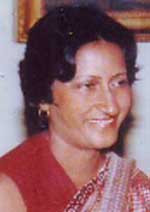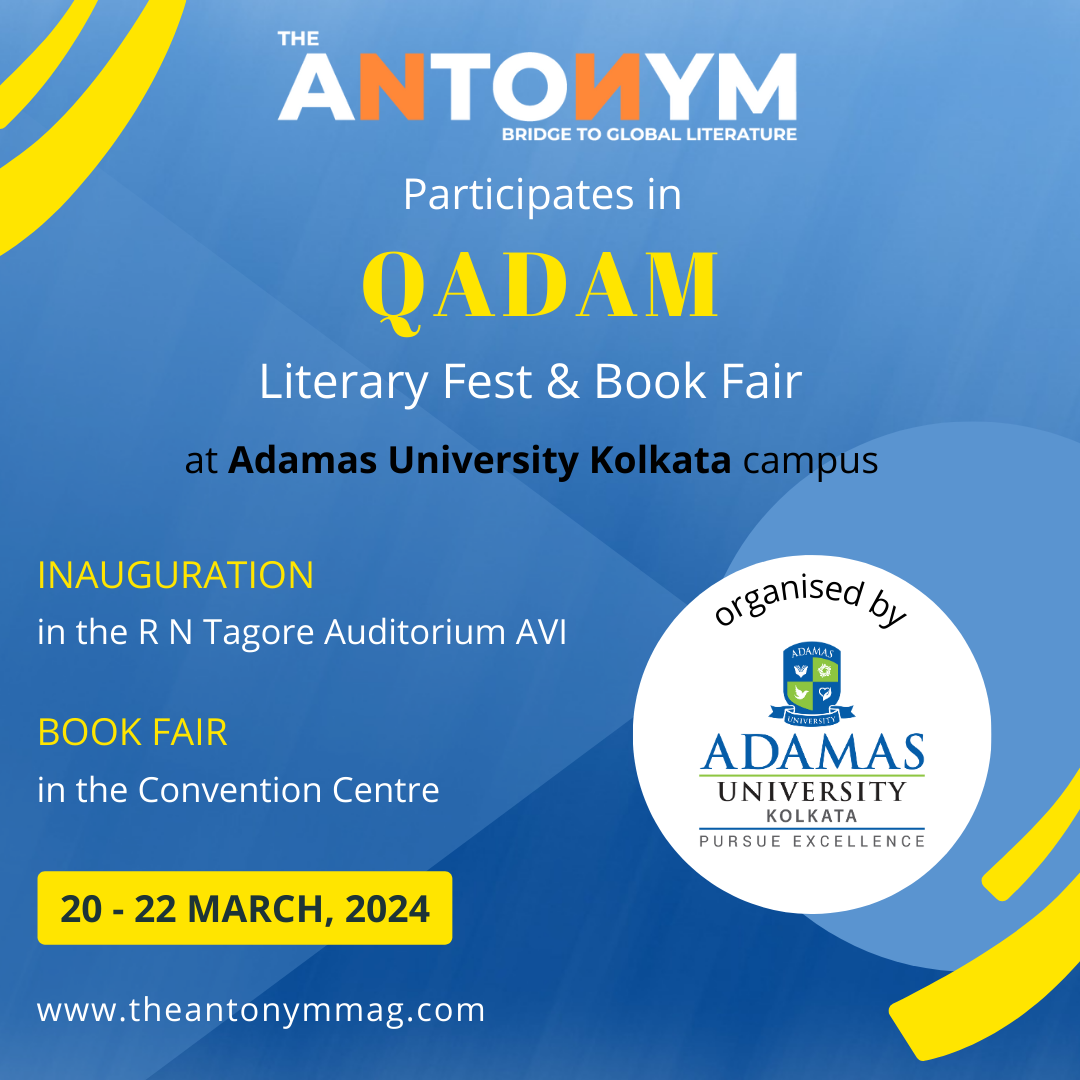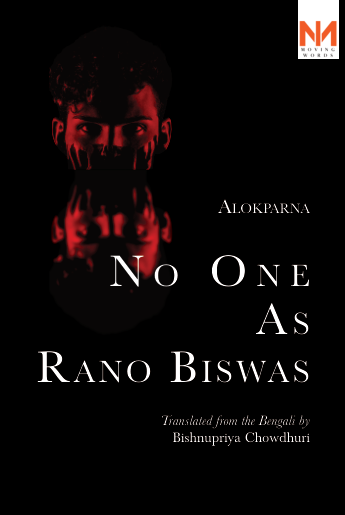TRANSLATED FROM THE HINDI BY ANURADHA DOSAD
On this day, Javed was also on duty along with Kareem. They met after many years, Javed eager to catch up on the stories of the intervening years from Kareem. However, as the noise suddenly escalated, he fell silent and alert, sensing trouble. He cautioned Kareem, “Stay ready, Kareem. Stand back. It seems trouble is brewing. I won’t let these troublemakers get away with it.” The procession moved forward in orderly rows, but beneath the surface, tensions simmered. Both factions were parading their tableau and Tajiya, that is, festoons, on the same day, adding to the potential for conflict. Deciding whom to halt, and how, posed a daunting challenge. Despite extensive security measures, including local police at every turn and BSF soldiers in plainclothes, uncertainty hung in the air. Kareem was confident that the Tajiya and tableau would depart simultaneously. They would converge briefly at a point just two furlongs away, where they would face each other before proceeding in their respective directions. Everything seemed on course until chaos erupted within the procession. Streets became scenes of turmoil, with bricks, stones, and soda bottles raining down from rooftops. The orderly procession dissolved into a panicked mob, scattering in all directions. People scattered in all directions, seeking refuge and safety amidst the chaos. Javed gripped his gun, his nerves on edge. “Get ready, Kareem! Arm yourself. These troublemakers must be dealt with. Take aim and fire! Blast those cowards off the rooftops!” Kareem scanned the windows and rooftops lining the street, witnessing people of all ages, men, women, and children, craning to catch a glimpse of the Tajiya and tableau passing below. Amidst the confusion, pinpointing the source of the projectiles proved nearly impossible. On the other side, individuals participating in the Tajiya procession revealed weapons concealed in their kurtas. Homemade guns, daggers, pistols, and even hand grenades. They were armed to the hilt, carrying ample ammunition as they joined the Tajiya procession. Javed, filled with adrenaline, exclaimed, “What are you waiting for, Kareem? Take down these insurgents!” But Kareem, fraught with worry, hesitated, “Javed, who do I target? There are innocent children, unarmed women, and men among them. And where are the stones and bottles coming from? Who’s attacking us? Do you have any idea?”
“What’s there to think about?” Kareem retorted sharply, “These are our own people.”
“We are here to enforce order. Forget about yourself and others. We have a duty to uphold.” Just then, his gaze fixed on the procession, and anxiety washed over him. “Javed, they are all armed, look! They have drawn pistols from their pockets. Stop them, Javed! Let’s intervene now!” “Are you out of your mind?” Javed yanked him back. “Save yourself first.” “I will disperse them,” Javed declared, firing off rounds ‘bam-bam-bam.’ The faces peering from the rooftops ducked out of sight. The crowd below scrambled for weapons, and windows slammed shut with a bang, causing a stampede on the rooftops. “What have you done, Javed?” Kareem exclaimed.
“I did what was necessary. Look at this,” he gestured with the double barrel, firing again at the women and children fleeing on the road. Kareem, shaken, intervened. “What has gotten into you? What are you doing?”
Javed, trembling with anger, advanced towards him. “Are you blind? Those were not our people!” He snatched back his gun. “So what?” Kareem was shocked. “What if they were innocent?”
“What if?” Javed scoffed. “We missed our chance. Eight to ten could have been taken down.” He shoved Kareem aside, drawing his gun. “You infidel.” And he moved forward.
“Infidel, Infidel,” echoed voices from a distant era. The sting of Jamal’s blow on his back was palpable. Kareem inquired, “Why did you adorn Ajji with a garland of flowers?” Laughter filled the air, but Kareem’s eyes darted around, scrutinizing each face like bullets.
“Brother, why did you garland her?”
“This is how it’s done, understand?”
“Why does it happen, brother?”
Attempting to deflect, Jamal mumbled, “May God forgive me.”
“Why? For what?” Jamal, went inside irritated.
Despite the tension, Kareem cherished Ajji, the goat dearly. He spent his days playing with her, sometimes gripping her tail or nuzzling her udder. He fed her green leaves and morsels of chapati, fostering a deep bond. At the sound of his voice, Ajji would leap, planting both hooves on his shoulders to nibble from his hand. When the leaves would run out, he would grab her horns and take her down from his shoulders.
The city stirred to the morning call of Azaan, signalling a day of celebration. Across homes, mosques, and every corner, the ritual of sacrifice resounded with the chant of “Allah Hu Akbar.” Kareem, rubbing sleep from his eyes, awoke to the festive atmosphere. Oblivious to the absence of familiar sounds, he peered out the window and called, “Ajji-Ajji!” Yet, the goat failed to appear as usual. With growing concern, he leaped from bed, rushed to the door, scanned the surroundings, then dashed towards the backyard. But Ajji was nowhere to be found. He searched everywhere, but Ajji was nowhere to be found, not even where she was usually tethered. The rope lay empty, as did her grass and water bowl. In the household, everyone was bathed and dressed in new clothes, ready for the festivities. Despite his uncle’s scolding to hurry up and take a bath, Kareem remained preoccupied, repeatedly asking, “Where has Ajji gone, Bhaijaan?”
Jamal shook him, “Hey, snap out of it. It is time for Namaz.” As aunt emerged from inside, Kareem clung to her legs, pleading, “Elder Ammi, where has Ajji gone?”
Hamida raised her hands towards the sky, invoking divine mercy. “Ajji was truly blessed. Now go, take a bath, and get ready. I need to go for Namaz. Everyone is waiting.”
“But Baji,” Kareem pleaded, gripping Hamida’s hand, “Where is Ajji? Please, tell me.” Touched by Kareem’s innocence, Hamida relented. “She is at the mosque,” she replied softly. Kareem dashed towards the door. “I will go to the mosque and bring Ajji back first.”
“He has lost his mind, someone stop him,” Jamal intervened, pulling Kareem back. Hamida took him inside to bathe, and Kareem eventually joined the family for Namaz, though his thoughts remained fixated on Ajji throughout the prayers. As Eid celebrations ensued, with children frolicking and families engaging in shopping, Kareem remained among them, but his eyes continued to search for Ajji. He didn’t indulge in toys or sweets, even as a lavish spread was laid out for the afternoon feast. The extended family gathered around the dastarkhan, with the elder father, younger father, elder mother, younger mother, elder aunt, aunts, uncles, cousins, brothers, and sisters all seated together.
Mothers cradled their little ones in their laps, the air filled with cheerful chatter. Joy permeated the gathering, from the elders to the smallest children. Yet, Kareem persisted in his inquiry, “Mother, where is Ajji? She has not eaten all day.” Initially, his words went unheeded, but Kareem persisted, questioning different family members repeatedly. In an attempt to lighten the mood, Jamal joked, “Look, your Ajji has become part of our meal.”
“In our meal?” Kareem’s entire being revolted. Jamal pointed to the meat in the bowls, saying, “Here is Ajji’s leg on my plate, her neck on Salim’s, and fragments of her torso in the others.” Laughter erupted, but Kareem was horrified. Wide-eyed, he watched as everyone began to eat. “Did you really butcher and cook Ajji? Are you eating her flesh?” Kareem rose abruptly, vomiting towards the wall before sinking back down, clutching his stomach in anguish, whispering, “Oh, my Ajji…”
His words halted the festivities. Morsels hovered midway to mouths as surprise swept over the gathering. Jamal was furious. He moved away from the dastarkhan and pounced towards Kareem, picked up by his ear and punched two-four times in his waist. “What’s gotten into you? Today is Bakri Eid, a day of celebration. Yet, this wretched boy has been obsessing over Ajji all day. Go away, get lost, you infidel.”
Hamida intervened, halting Jamal’s aggression. “He has just returned from outside with younger Aunt. Don’t beat him. He is just a child. He will understand in due time. Next year, we will have to educate him properly. This act is a crime and an insult to our religion.”
“Don’t be so high and mighty, Jamal. Hamida has explained it to you,” Kareem’s mother, Zahira, interjected, rising to lead Kareem to another room. By the following year, Kareem had progressed to the third grade, growing an inch taller in the process. Throughout the year, he played, laughed, and lived like any other child, unaware of the passage of time. Then Bakri Eid arrived. A goat was brought and tethered in the backyard, adorned with a garland around its neck. Kareem resumed his playful interactions with the goat, feeding it green leaves and bits of chapati, embracing his neck and riding on his back after school. As Eid dawned, the family gathered in the backyard to prepare for the goat’s sacrifice. It was decided that Faizu would perform the deed, a decision met with unanimous agreement. Hussain uncle, visiting from London, was asked if he would participate. “No, I won’t,” he replied, briefly touching Faizu’s dagger before retreating to his room. In the early morning hours, the call to prayer echoed through the city, stirring it from its slumber. “Allahu Akbar… Allahu Akbar, Ashdun la Allah Ilallah.” The once-sleeping city now awakened to the dawn of Eid.
The call for Namaz rang out, signalling the start of Bakri Eid. Hundreds of animals were to be sacrificed, their fate sealed with the chant of “Allah Hu Akbar.”
Elder and younger fathers stood alongside Faizu, with all the elders of the house gathered in solidarity. Children formed the next row, with Jamal keeping a close eye on Kareem, mindful of his promise from the previous year. Abbu had initially suggested donating a goat to the mosque, but reconsidered, stating, “We must consider our status.” Instead, he instructed Faizu to divide the sacrificial meat into three parts: one for the needy, and two for the family and relatives. As Fajar prayer concluded, Faizu’s dagger flashed like lightning, swiftly descending upon the goat’s neck. The head hung limply, blood pooling beneath it, while the body convulsed briefly before stillness prevailed. Drops of crimson stained the ground, a solemn testament to the sacrifice. Kareem, overwhelmed by the scene, wrenched free from Jamal’s grip, collapsing to the floor in anguish. He was vomiting again and again. Jamal stepped back but his pyjamas were soiled in the chaos. Elder mother rushed forward in concern. “Oh God, what’s happened to him?” Younger Aunt Zahira cradled Kareem in her arms, coaxing, “What’s wrong, Kareem? Open your eyes, my child.” “What’s happening?” Jamal intervened, wrenching Kareem from his aunt’s embrace and tossing him to the ground, delivering a harsh blow to his back. “You’re an infidel,” Jamal spat, turning to Zahira. “Khala, don’t coddle him. Whatever the issue, he needs to understand. This is a sin. Our children must learn to obey God’s commands.” Zahida tried to comprehend the situation, recalling Kareem’s tight grip on his father’s hand during meat cutting. She remembered his joy in the vegetable market, where he would frolic among the colourful produce. “Jamal, let’s end this here. We are returning to India next week,” Zahida suggested. But Ammi intervened, “There is no need to leave our homeland and family. What will you achieve by going there? After Kareem’s father’s death…” “No, Aapa, we were born there. Kareem was born there too. We have our land, property, and homes there. Zubeida’s family is there. The places we call home are ingrained in us. We have grown up with the soil, air, and water there.” Despite everyone’s warnings, Kareem returned with Zahida. At present, as he watched Javed depart, he initially mistook him for Jamal. Opening and closing his eyes, he realized the truth that there is not just one Jamal, there are many, both in Pakistan and here.
Also, read four Italian poems written by Paolo Fichera, translated into English by Mikica Pindzo, and published in The Antonym:
Follow The Antonym’s Facebook page and Instagram account for more content and exciting updates.

































0 Comments